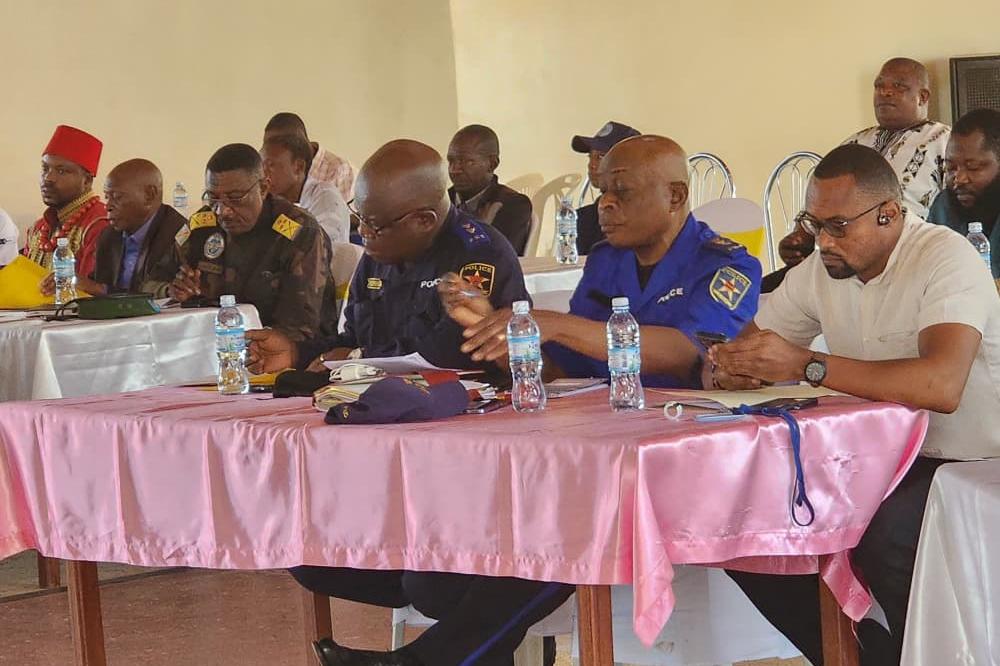"Recruiting children into the army before they reach the legal age of majority means depriving them of their right to education".
Since December 2022, the Army and Police have launched recruitment campaigns to strengthen their ranks and tackle the insecurity that is rife in some provinces of the Democratic Republic of Congo.
MONUSCO is supporting these operations, notably by organizing screenings, i.e. processes to identify and verify the age of voluntary candidates for recruitment or for a military career. The aim is to prevent children under the age of 18 from being recruited into the Congolese army and national police force.
In this context, on June 7, 2023, a team from the Child Protection section of MONUSCO separated nine new children (minors), including one girl, from candidates volunteering for recruitment into the army in Beni, in the Grand Nord-Kivu region.
This took place during a screeningj at the Mambango military camp, located a dozen kilometers from downtown Beni.
After their separation, these 9 children, aged between 14 and 17, will be reunited with their families. "But in the meantime, we are going to refer them to UNICEF through its representatives here in Beni, to ensure they receive support," says MONUSCO.
These screening or verification operations aim to help implement the Congolese government's commitment to stop recruiting children into the Congolese Armed Forces and Police.
Between December 2022 and June 2023, a total of 642 children in North Kivu province, including 27 girls, were separated by MONUSCO from voluntary candidates for FARDC recruitment.
Sixty children (including 7 girls) out of the 642 are from the Grand Nord-Kivu region (which includes Lubero, Butembo, the town and territory of Beni).
Giving children a chance to attend school
Bernard Okanda of the Child Protection Section of MONUSCO in Beni explained that this operation has several other objectives. Firstly, to promote children's rights. "The FARDC need MONUSCO's expertise in assessing the age of new recruits. With our friends at UNICEF and its partners, we are able to detect the real age of candidates for police and military posts", he explains.
But how is this screening carried out? Mr. Okanda explains that "it involves an interview that consists in making cross-checks in relation to biological lineage, historical events and social, cultural and economic considerations, etc. The margin of error is very small. around 0.5%", he says.
He adds that "even doctors often resort to our more reliable methods".
This process of determining the age of would-be recruits has another benefit in that it helps prevent those under the age of 18 from joining the army or police, thus avoiding them the risk of suffering physical harm during training because of being too young for certain physical exercices.
But above all, it's "to enable them to obtain at least a secondary school diploma", says Bernard Okanda. For "to take them on before they reach the age of majority is to deprive them of their right to education", he reminds us.
Respecting commitments
For the Congolese army, this exercise, which is taking place in complete transparency, is proof of the Congolese government's commitment not to recruit children into its ranks.
"Today, the FARDC cannot recruit minors. This screening proves that the Congolese government in general and the FARDC in particular continue to respect the agreements signed with MONUSCO and all these child protection NGOs", says Colonel Faustin Ndakala, Director of Information, Selection and Orientation at the FARDC's 34th Military Region.
“We can never stress this enough: a child belongs in school or with his or her family, not in an army or militia," concluded this Congolese army officer.






